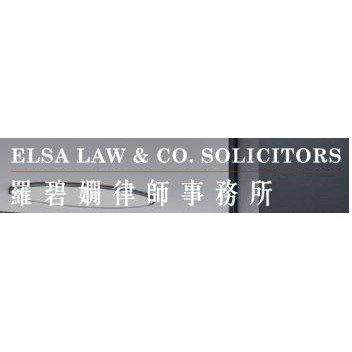Best Administrative Lawyers in Wanchai
Share your needs with us, get contacted by law firms.
Free. Takes 2 min.
List of the best lawyers in Wanchai, Hong Kong
About Administrative Law in Wanchai, Hong Kong
Administrative Law in Wanchai, a major metropolitan area in Hong Kong, principally covers legal issues about governance, public administration, and regulations. It deals with the actions and operations of government agencies and departments, serving as a check for public governing bodies and ensuring their decisions are legal, fair, and within their jurisdiction. Administrative law also governs the relations between individuals, corporations, and government bodies, encompassing a wide range of issues from immigration and taxation to environmental policy, privacy rights, and more.
Why You May Need a Lawyer
Given the complex nature of Administrative law, professional legal guidance is often indispensable. You may require an attorney when contesting a government decision, seeking a permit or license, facing an investigation from a regulatory authority, or dealing with administrative issues related to business, employment, healthcare, or education. Moreover, an administrative lawyer can offer valuable advice, represent your interests, and guide you through the intricate legal protocols in conflict situations.
Local Laws Overview
In Wanchai, Hong Kong, administrative law is primarily governed by the Basic Law and the common law system, which is inherited from the British legal system. The Basic Law is the constitutional document of Hong Kong and guarantees the rule of law, while the common law system permits judgments from previous cases to inform how current and future cases are judged. Furthermore, The Administrative Appeals Board (AAB) hears and determines appeals against decisions made by various governmental bodies on a wide range of administrative matters.
Frequently Asked Questions
1. What is an administrative tribunal?
This is a non-judicial body established to settle disputes between administrative authorities and those who feel their rights have been infringed.
2. Can I represent myself in an administrative proceeding?
Yes, you can. However, given the complexity and inherent legalities in administrative matters, it's often recommended to enlist professional legal assistance.
3. What are the areas of specialization within administrative law?
Different areas of specialization include, but are not limited to, education law, immigration law, public health law, and taxation law.
4. How is administrative law different from criminal law?
While criminal law deals with offenses against society at large, administrative law primarily deals with situations involving public governing bodies, and their decisions and regulations that impact individuals or entities.
5. Can I challenge a decision of the administrative tribunal?
Yes, you have the right to challenge the decision of an administrative tribunal. The process typically involves taking your case to a higher court, which demands substantial awareness of legal protocols and practices.
Additional Resources
Organizations such as The Law Society of Hong Kong, Hong Kong Bar Association, or The Ombudsman can serve as useful resources. Government bodies such as Administrative Appeals Board (AAB) and District Offices are also valuable resources for administrative law information and support.
Next Steps
If you think you require legal assistance in administrative law, begin by identifying your specific problem and seeking a lawyer who specializes in that area. Consult with your chosen attorney about the matter at hand, understand the possible legal options, and formulate a strategy accordingly. Remember, it's crucial to ensure that your attorney is well-versed in Hong Kong's administrative law system, particularly pertaining to Wanchai.
Lawzana helps you find the best lawyers and law firms in Wanchai through a curated and pre-screened list of qualified legal professionals. Our platform offers rankings and detailed profiles of attorneys and law firms, allowing you to compare based on practice areas, including Administrative, experience, and client feedback.
Each profile includes a description of the firm's areas of practice, client reviews, team members and partners, year of establishment, spoken languages, office locations, contact information, social media presence, and any published articles or resources. Most firms on our platform speak English and are experienced in both local and international legal matters.
Get a quote from top-rated law firms in Wanchai, Hong Kong — quickly, securely, and without unnecessary hassle.
Disclaimer:
The information provided on this page is for general informational purposes only and does not constitute legal advice. While we strive to ensure the accuracy and relevance of the content, legal information may change over time, and interpretations of the law can vary. You should always consult with a qualified legal professional for advice specific to your situation.
We disclaim all liability for actions taken or not taken based on the content of this page. If you believe any information is incorrect or outdated, please contact us, and we will review and update it where appropriate.








